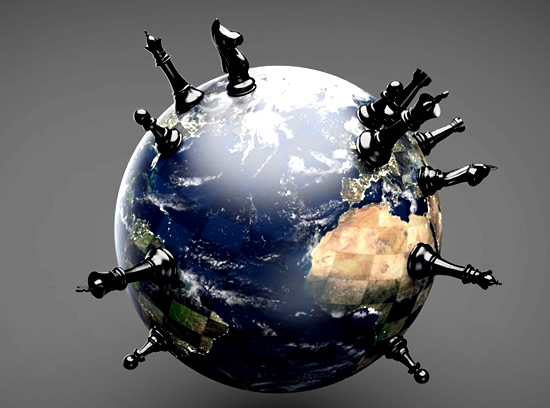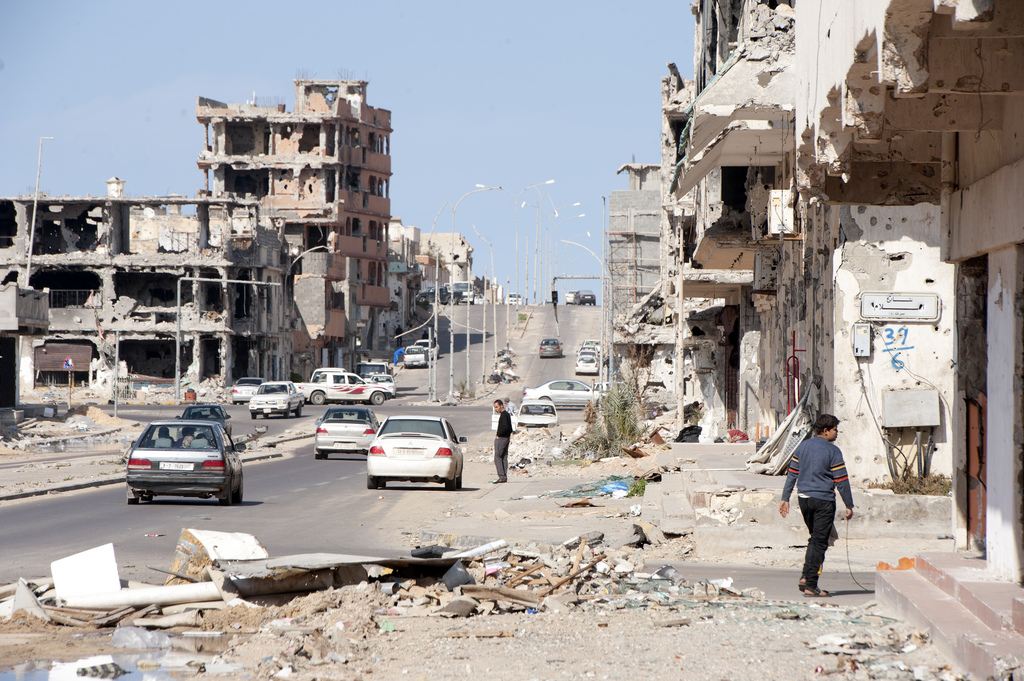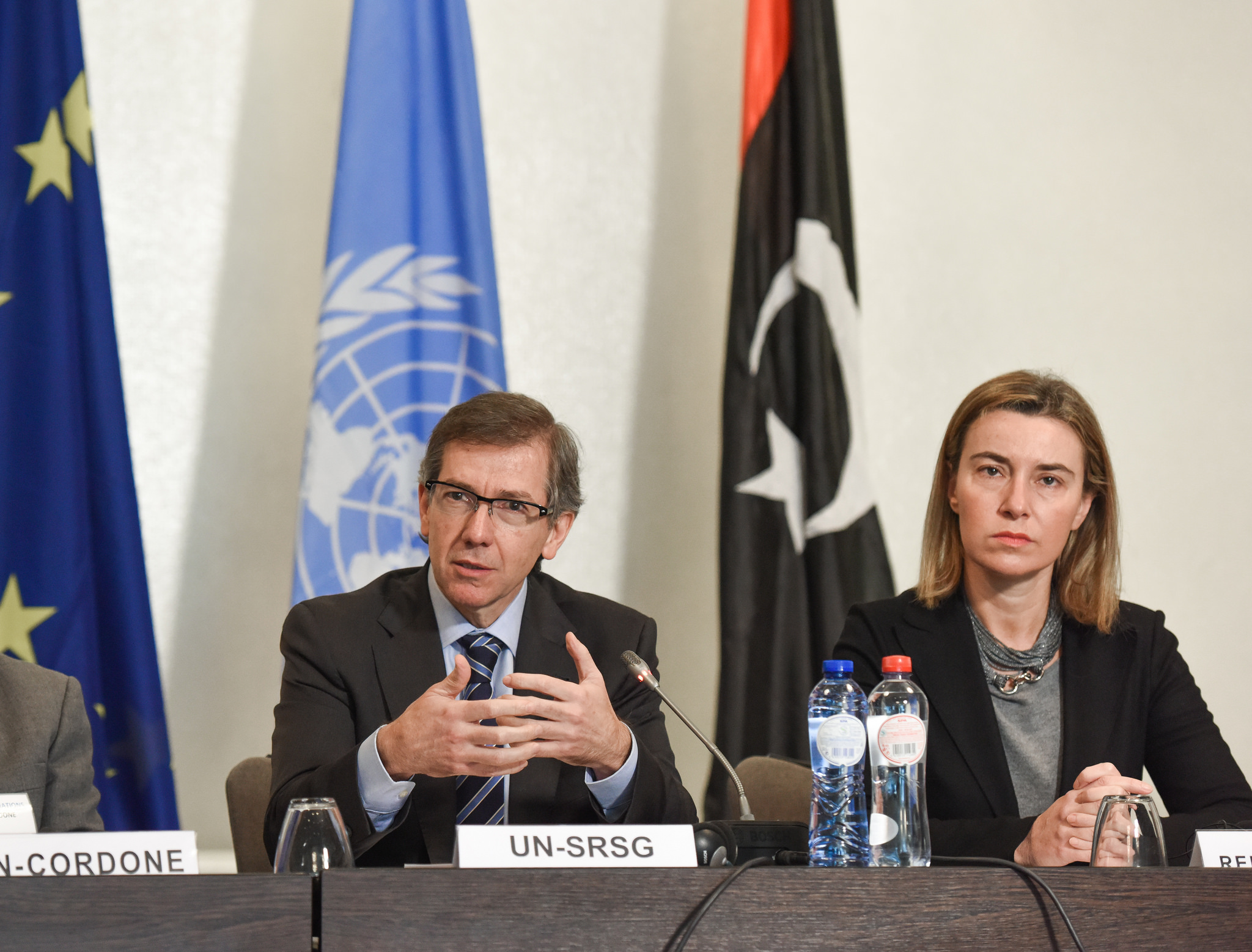
On Writing: A conversation with Tom Fletcher, author of Naked Diplomacy [Part III]
Dr Tristen Naylor, Oxford’s Lecturer in Diplomatic Studies, chatted with Tom Fletcher, the former British Ambassador and Downing Street foreign policy advisor, about his new book, Naked Diplomacy. In this three-part series their discussion explores everything from diplomacy in the digital era to the divide between academics and policy makers — with a nod to the intertextuality of W.H. Auden and Black Sabbath along the way. For Part I, see here, and Part II, see here. TN: I want to talk about your style of writing and your approach to it. I spend most of my waking hours reading works on diplomacy and I spend much of that time asking myself why I self-inflict such torture because so much of it – too much …

Communication in the 21st Century: A conversation with Tom Fletcher, author of Naked Diplomacy [Part II]
Dr Tristen Naylor, Oxford’s Lecturer in Diplomatic Studies, chatted with Tom Fletcher, the former British Ambassador and Downing Street foreign policy advisor, about his new book, Naked Diplomacy. In this three-part series their discussion explores everything from diplomacy in the digital era to the divide between academics and policy makers — with a nod to the intertextuality of W.H. Auden and Black Sabbath along the way. For Part I, see here. TF: In diplomacy, like any other trade, there are people who simplify and people who complicate. I tend to side with the simplifiers. TN: I can easily see that. Just taking the very start of your book as an example, you begin with W.H. Auden’s ‘The Embassy’, which so elegantly and simply …

Diplomacy, Academia, and The Threat of Irrelevance: A conversation with Tom Fletcher, author of Naked Diplomacy
Dr Tristen Naylor, Oxford’s Lecturer in Diplomatic Studies, chatted with Tom Fletcher, the former British Ambassador and Downing Street foreign policy advisor, about his new book, Naked Diplomacy. In this three-part series their discussion explores everything from diplomacy in the digital era to the divide between academics and policy makers — with a nod to the intertextuality of W.H. Auden and Black Sabbath along the way. See Part II here. TN: Tom, your new book is Naked Diplomacy and your blog is The Naked Diplomat. Borrowing from Jamie Oliver as the ‘Naked Chef’, who sought to strip cooking back to its bare essentials, you’re seeking to do the same with diplomacy. Why do you think that doing so is necessary now? TF: …

Exit, voice, and loyalty in Europe
Complex situations often require us to take a step back for what consultants call the 10,000 feet view. The problems facing the EU these days—from Grexit to Brexit—surely seem impenetrable. A convoluted potpourri of economic, financial, and political crises leaves most observers either completely disengaged or increasingly reliant on their gut feelings. To wrap one’s head around the forces that threaten the European project, it helps to think in very simple categories: exit, voice, and loyalty. Few theories still prompt real-life insights almost half a century after their publication. Albert O. Hirschman’s “Exit, Voice, and Loyalty” surely falls into this category. Put simply, Hirschman postulated that members who are unsatisfied with an organisation they are part of, can either exit …

International intervention and the politics of building peace: ‘liberal imperialism’ or somewhat irrelevant?
International intervention in war-affected regions is the subject of much academic attention. Scholars and policymakers alike have been keen to understand the impacts, positive and negative, that international actors have when striving for peace in foreign countries. More often than not, the continuation of violence in areas that have been subject to heavy intervention, from Sudan to DRC, has generated staunch critique of the potential of such programmes to achieve their stated aim of ‘peace’. Africanist scholars in particular have identified efforts geared towards the increasingly linked aims of development and security as not merely ineffective, but exacerbating dysfunctional politics, insecurity and poverty across the continent. Following the wider critique of the liberal peace, interveners from UN peacekeepers to human …

The emotional amoral egoism of states
In 1812 Napoleon Bonaparte, at the heights of his power, set out for the most adventurous, and ultimately fatal, military campaign. Napoleon’s Grand Army of over 500,000 men, the largest force ever mobilized to that date, was led to the lands of Russia. Historians have long investigated the misjudgements of this campaign and the question of hubris emerges as an underlying factor for Napoleon’s vehemence to pursue a disastrous campaign. Hubris is exaggerated pride, often combined with arrogance. Excessive confidence and reassurance, inspired from his established conquests and grandiosity, further inflated by narcissism, led Napoleon to conduct a military campaign that could be allegedly classified as irrational because it took place against the backdrop of a series of warnings and unfavorable forecasts from his lieutenants. The motivations for setting to conquer Czar Alexander’s Russia were less driven by the geopolitical necessity of defeating a rival power as by the impetus “to satisfy a hubris-infected personality” and an insatiable “hunger (…) for applause from others”.
Traditional theoretical accounts on the interaction between states have largely favoured the view of states as rational actors, attributing too little to the role of emotions. The Realist assumption that leaders (even elected ones) act predominantly rationally implied similar expectations on the level of states. This claim can be countered on several fronts. The state can be a rational, self-interested, power-maximizing actor, yet deconstructing the discourse on state rationality and state egoism, defined as the pursuit of national interests, paints a more complex picture of the facets of state conduct. This takes us beyond the established IR dogma about the state.

The Enemy Next Door? ISIL, Libya and Proto-State Actors
One more disaster in North Africa – News about the fall of Sirte to ISIL (Islamic State of Iraq and the Levant) has produced little reverberations across the Mediterranean. While there seems to be concerns about it, they are mostly about unrest happening “there” and, thus, fortress Europe can only force more measures to fortify itself and make sure that unrest remains where it is. Needless to say, anti-immigration debates continue to be loud, and are largely informed by a worldview at odds with itself, in which host communities are pitted against a deluge of immigrants – a burden on the economy and a marching in of an inflexible and alien culture. The reasoning is as follows: This is not “our” problem; it is “theirs”. The myopia of ownership and the shortsightedness of this view cannot be overstated. ISIL may be a short-term disaster but, more importantly, it is a long-term problem, and not only for North Africa.
The map of North Africa is rapidly changing and the unrest is not geographically bound – To begin with, it is believed that many of the terrorist groups are, in fact, getting their orders from within the depths of Europe. The world is not as divided as it used to be and modern warfare is less about the smuggling of weapons and more about the spread of ideas. So, what is to be done? In this article, I argue that the unrest in North Africa is far from North Africa-bound and that the failure of governments and sopra state bodies to coordinate will lead to an expansion of the chaos. Europe must look inwards – Immediate shifts in the discourse and intervention modalities are needed to address an unfolding crisis.

How the international community failed Libya
The international community has failed Libya. While this may come across as a harsh verdict to the many organizations, governments and individuals, sometimes well-meaning, who since 2011 have been flocking in and out of the country in an attempt to secure its transition to state-hood, it is the case that many of those transactions remained confined to the surface of Libya’s socio-political transition. One still remembers the high hopes of 2011. Libya, with the largest oil reserves in Africa, was well-positioned to launch a new era unlike its neighbors, Egypt and Tunisia, who had mounting economic and structural challenges to address. In Egypt, between 2004 and 2010, there were more than 3,000 labor actions, between protests and strikes, mobilized against a baggage of old anti-democratic and intricately corrupt state structures in what came to be called the “deep state”.[i] Libya was deemed to have none of that “depth”. But did it? Is it true that Libya, with no known institutional history, possessed none of the complexities of its neighbors? This article will reflect on some of the aspects of that invisible complexity.









